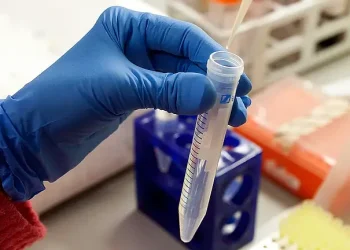Patients with sickle cell disease in England will soon benefit from enhanced treatment options thanks to a £9 million investment by NHS England.
This funding aims to expand access to Spectra Optia machines, which perform automated red cell exchanges, improving patient outcomes and potentially saving the NHS up to £12.9 million annually.
Transforming Sickle Cell Treatment in the UK
The recent £9 million investment by NHS England marks a significant step forward in treating sickle cell disease, a condition affecting approximately 17,000 people across the country.
Predominantly impacting Black African, Caribbean, Middle Eastern, and South Asian communities, this initiative aims to make life-saving automated red cell exchange technology more widely available.
Spectra Optia machines are designed to replace sickled cells with healthy donor cells through automated red cell exchanges.
This process not only reduces hospital time but also minimizes complications such as iron overload, significantly enhancing patients’ quality of life. The NHS could save nearly £19,000 per patient annually by replacing manual transfusions with this advanced technology.
Benefits for Patients and Families
- Quicker access to advanced treatment reduces painful crises and hospital admissions.
- Expansion of out-of-hours services makes care more accessible for those living far from major hospitals.
- Improved quality of life enables patients like Robert Ojeer to work and care for their families.
- Reduced need for frequent follow-ups eases financial burdens on patients.
NHS’s Commitment to Healthcare Innovation
This funding complements the recent approval of a groundbreaking gene-editing therapy hailed as a ‘functional cure’ for severe sickle cell disease.
It reflects ongoing efforts by the NHS to tackle healthcare inequalities and improve treatment options for rare blood disorders.
The initiative aligns with the government’s Plan for Change, which seeks to integrate cutting-edge digital healthcare solutions into frontline services.
A Broader Effect on Healthcare Standards
- The UK positions itself as a leader in managing rare blood disorders globally.
- This investment may influence other countries with significant sickle cell populations.
- The focus on digital innovation during London Tech Week underscores the UK’s role in promoting healthcare technology internationally.
Voices from Industry Leaders
“People living with rare conditions like sickle cell disease face immense everyday challenges… Through our Plan for Change, this government will be the one that removes barriers… so patients can access the best care available.”
– Wes Streeting, Health and Social Care Secretary
“This is great news for people living with sickle cell disease… Alongside this important step, the recent approval of a new gene-editing therapy showcases the NHS’s clear commitment.”
– Prof Bola Owolabi, Director of Healthcare Inequalities at NHS England
“Sickle cell disease disproportionately impacts people from West African and Afro-Caribbean communities… This new funding announced today will enable technology use on a longer-term basis.”
– Richard Stubbs, Chair of Health Innovation Network
“Having access to automated exchange improves my quality of life… I hope every sickle cell sufferer in England can access these services.”
– Robert Ojeer, Patient at Imperial College Healthcare NHS Trust
Additional Reading
Wrapping Up
The £9 million investment by NHS England represents a pivotal moment in advancing treatment options for sickle cell disease patients across England.
By expanding access to innovative technologies like Spectra Optia machines and supporting new therapies, this initiative promises improved health outcomes while addressing healthcare inequalities within affected communities.
More of Todays Top Breaking Government News Stories!
Sources: UK Government, Department of Health and Social Care, NHS England and The Rt Hon Wes Streeting MP.
Prepared by Ivan Alexander Golden, Founder of THX News™, an independent news organization delivering timely insights from global official sources. Combines AI-analyzed research with human-edited accuracy and context.









